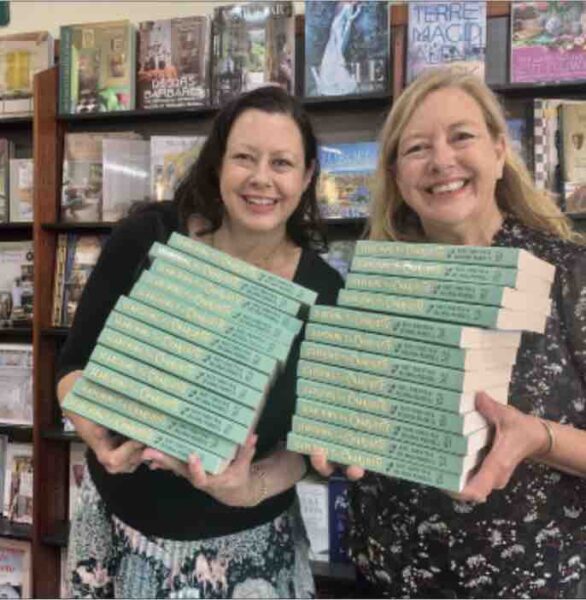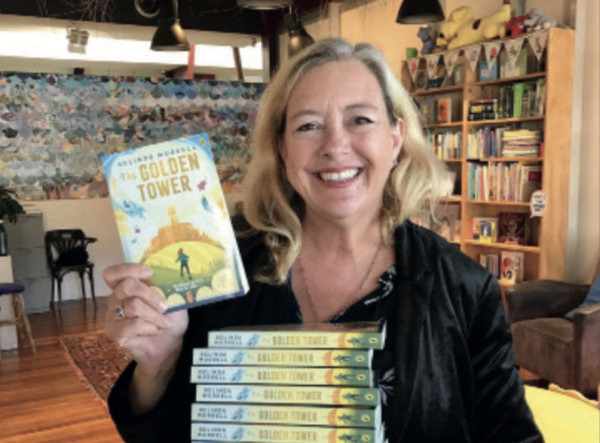This article was re-published with the permission of Women’s Ink, where it originally appeared.
When speaking at literary festivals and schools about my career as a writer, I often say that I have the best job in the world!
Over the last sixteen years, I have had 36 books published, mostly by Penguin Random House, ranging from contemporary junior fiction, historical novels for children and teenagers, to adult non-fiction.
These books have been published internationally, produced as audio books, won awards, pitched for TV and translated into various languages. My work has taken me on hectic book tours around Australia and fascinating overseas research trips. It has been a rollercoaster ride of challenges and incredible joys, providing so many life highlights and experiences.
Here are some of my insights from along the way:
1. Trust Your Team
While I spend many months writing each book, the publishing journey is very much a team effort. I have been incredibly lucky to work with publisher extraordinaire, Zoe Walton at Penguin Random
House and my amazing agent Pippa Masson at Curtis Brown, on more than 30 books. They have both been incredible champions for my books and I have benefited enormously from their wisdom and knowledge.
Every book is a team effort utilising the talents of my publisher, editor, proof-reader, and cover designer, then the specialists in sales, marketing, and publicity, who work so hard to get my book into the hands of readers. These experts all help me to make each book the very best it can be, so it is vital to trust the feedback of your publishing team. At a recent conference, a US publisher confided that many debut authors never get another book contract because they refused to accept the advice of their editors.
2. Keep Learning
I’ve been earning my living as a writer for over 30 years, since I left university, working as a corporate copywriter, freelance journalist, travel writer, and author. I love learning – whether it is enrolling in courses (a favourite was the Writing Memoir course at London University), reading articles and blog posts, listening to podcasts, or attending publishing conferences and literary festivals.
I always discover gems, whether it is to be reminded of craft, identifying emerging trends or gaining insights into the ever-changing business of publishing.
3. Make Writing a Priority
When my children were younger, and I was working as a freelance journalist, I wrote my first book at night, over two years, while my kids were asleep. Now, while writing is still a joy, it is also my full-time job, so I cannot sit around waiting for divine inspiration to strike. I am essentially running a small business, relying on daily routines and goal setting to help my creative process, manage finances and meet tough deadlines.
I work regular hours, setting strategic objectives and strict editorial deadlines throughout the year. For example, I set myself daily and weekly word goals, such as 1000 words per day or 5000 words per week. I may be working on several books at once such as gathering inspiration, editing a current manuscript, or promoting a new release. For me, forward planning is essential as I sign each publishing contract based on a detailed synopsis.
4. Embrace your Community
Working from home can be lonely, but fortunately the children’s writing community is welcoming and encouraging. My author friends help me celebrate successes and we support each other through challenging times. It helps to join and network through organisations like Writing NSW, Australian Society of Authors, Children’s Book Council of Australia and of course the Society of Women Writers. These organisations run workshops, mentorships, advice services and social opportunities to meet other writers. Festivals and literary events (like the Writing NSW Kids and YA Festival) are also an ideal opportunity to connect with readers and other writers.

5. Patience, Passion and Persistence
Publishing is a highly competitive yet slow- moving industry, with book contracts planned out sometimes years in advance. Many aspiring writers report writing and pitching for several years before being published, so it is important to have buckets of patience. If you have talent, plus a burning passion for your stories and characters, then keep trying! Persistence is key!
6. Understand the Business
Publishing is a business like any other, and it is important to know how it works. Most Australian publishers are actively looking for fresh talent, keen to discover new books they love. Yet the flipside is that publishers need to sell books to create a profit. Their ‘ideal author’ can write and promote many successful books, rather than being a one trick pony.
Unlike the million-dollar advances shown in the movies, the reality is much leaner. A 2021 Australian Society of Authors survey found that 58 percent of authors do not receive any advance payment when signing a publishing contract for their manuscript. Others reported receiving a modest advance of less than $2,000, while only 13 percent received an advance of more than $10,000.
This advance payment needs to be earned out, through book sales. If the advance is covered, the author then receives royalties, paid twice a year, based on a percentage of books sold, usually 10 percent of the recommended retail price. More than half of Australian titles sell less than 2,000 copies, while only a small proportion sell more than 10,000 copies. Based on these figures, perhaps it is not surprising that the ASA survey found that more than half of full-time writers earned less than $15,000 per year from their creative practice, and that income had dropped significantly during the pandemic.
Another complexity is ‘sale or return’, where new releases are shipped to bookstores on consignment for 90 days. If the book does not sell by then, the bookstore returns it to the warehouse. Up to one-third of books are returned unsold, so publishers retain a percentage of royalties to cover this probability.
7. Diversify
It can be challenging to make a living writing books. Most authors I know rely on multiple income streams or have a ‘proper’ day job. In my case, much of my income is comprised of publisher advances, royalties, Education Lending Rights and Public Lending Rights. The remaining income is a combination of teaching writing, speaking engagements, journalism, writer-in- residence programs, and related literary roles, such as being Festival Director of the Writing NSW Kids and YA festival. Likewise, over the years, I have diversified the genre and age group of books I write – ranging from picture books, early chapter books, history, time slip, fantasy, contemporary realism, to biography and memoir.
8. Read Lots
It is so important to read lots, especially recent books in the genre and age group that you are writing for. Fashions change, like any other industry and its important to have a feel for what is trending and what is not! Publishers often ask aspiring writers to name recent books they love and comparative titles to their own work. My agent, Pippa Masson, at Curtis Brown, says that the number one fault that she sees with aspiring writers, is “Not reading enough. It’s the key ingredient to becoming a successful writer. Read widely and often!!”
9. Celebrate Often
All successful authors I know work extremely hard. Deadlines are tough and there is a strong pressure to proactively market yourself through speaking engagements, social media and promotional activities. It can be so easy to get caught up in the stress of working life and forget to enjoy the small achievements along the way.
So I love to celebrate – cracking a bottle of bubbly with my husband, cooking a beautiful meal for my family, or taking an afternoon off to have lunch with a friend. Best of all, I love getting piles of letters from readers who adore my books. I feel so grateful to be able to write books which bring joy to so many readers.

